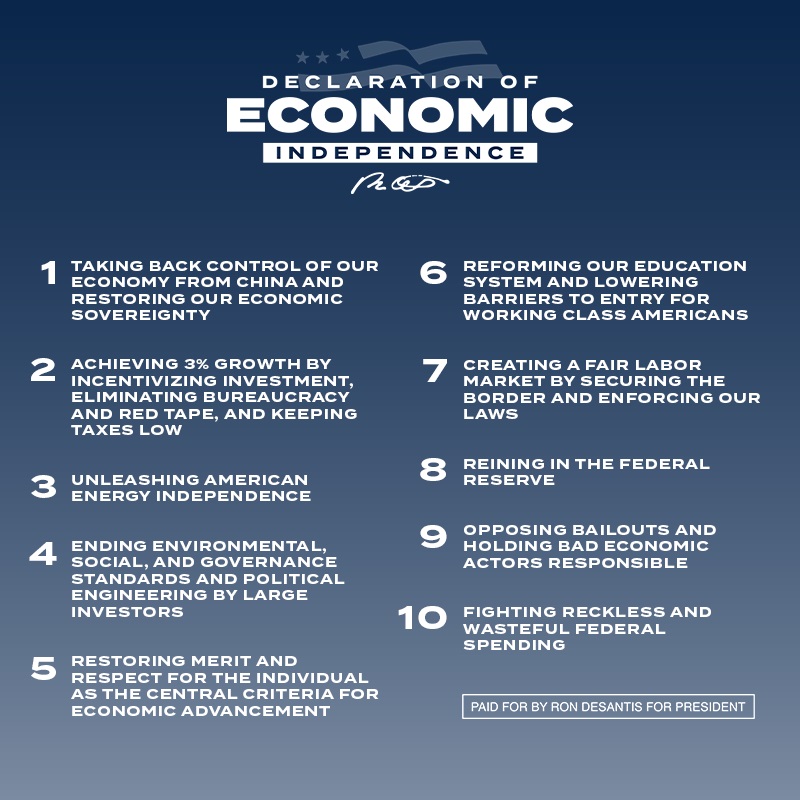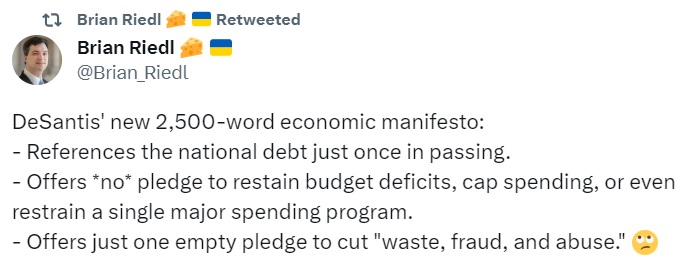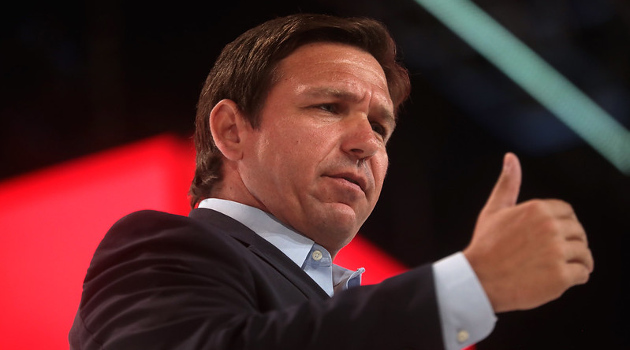During the 2016 presidential cycle, I graded the tax reform plans of various presidential candidates based on factors such as marginal tax rates, double taxation, and fairness.
For the 2024 cycle, candidates have been disappointingly reluctant to make specific proposals about tax policy. Heck, most of them have very little to say about economic policy in general.
So I was excited when I read that Florida’s governor, Ron DeSantis, was unveiling an economic plan. The good news is that he seems to favor a smaller burden of government. The bad news is that he is not very specific.
His theme is to have a Declaration of Economic Independence.

There’s a lot to like on the above list, but also some items that may cause heartburn.
But my main reaction is that we don’t see details. Even if you go to the DeSantis website, there are very few specific policy proposals (though the ones I did find – such as support for full expensing and opposition to a central bank digital currency – are admirable).
The Wall Street Journal editorialized about the DeSantis plan and found many positive features.
Mr. DeSantis’s economic plan calls for “ambitious tax and regulatory reform,” including making permanent “full immediate expensing” for businesses. Ditto for today’s tax rates on personal income. …he says he’d simplify the tax code further, while purging “K Street carveouts and loopholes.” This is the right instinct, though we await specifics. …It says Mr. DeSantis’s appointee to lead the Federal Reserve would “focus on maintaining a stable dollar instead of the political pressures of the day.” Stable money is essential to rising incomes, and GOP candidates should make it the basis for any economic program. …The plan says he’d “support school choice nationwide…” As for college, he wants to stop government subsidies for “useless degrees” by making “universities, not taxpayers, responsible for the loans their students accrue.”
But the editors also worried that the Florida governor is using populist rhetoric…and perhaps even supporting populist policies.
Sometimes Mr. DeSantis sounds like an optimistic believer in economic freedom, arguing that the way to produce broad prosperity is to get government out of the way. With the next breath, he’s a Trumpian who wants industrial policy, speaks ominously of “large corporations,” and pits the middle class against “elites.” The Governor is trying to advance conservative policy while simultaneously appealing to Mr. Trump’s base. …He needs a vision for American renewal that transcends Mr. Biden’s plans to use big government for income redistribution and Mr. Trump’s desire to use it for political “retribution.”
Probably the most disappointing feature of the DeSantis plan is that absence of any plan to restrain the burden of government spending.
My former colleague Brian Riedl is similarly frustrated (though he focuses more on red ink while I care about excessive spending).

For what it is worth, DeSantis got very high scores for fiscal policy from both the Club for Growth and the National Taxpayers Union while serving as a Congressman last decade.
So I suspect he knows what should be done (including genuine entitlement reform), but is afraid Trump will attack him from the left.
Which is strange since he has a great opportunity to attack Trump from the right by pointing out his bad track record on spending (and bad future agenda on taxes).
———
Image credit: Gage Skidmore | CC BY-SA 2.0.


